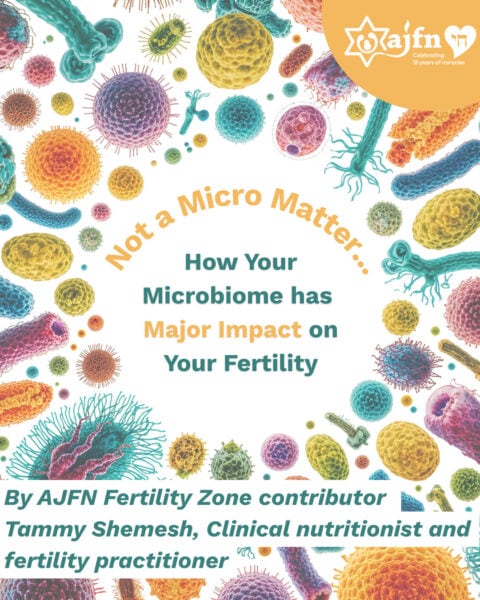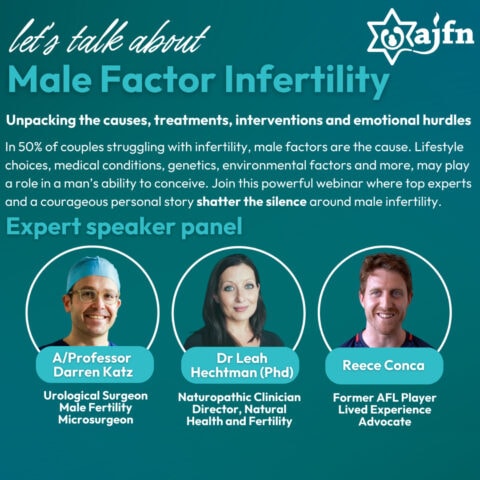What are chromosomes?
Chromosomes are found in each cell in the human body. They carry the genetic material (genes) that determines all human characteristics, including hair colour, eye colour, height and sex. Each cell in the human body normally has 23 pairs of chromosomes (a total of 46). Chromosomes are made up of long strands of a chemical substance called deoxyribonucleic acid (DNA).
Of the 23 pairs of chromosomes, one pair is called the sex chromosomes because they determine a person’s sex. The sex chromosomes in a female are called XX and in a male are called XY. One sex chromosome is inherited from the mother and one from the father. Mothers always pass on an X chromosome, but fathers can pass on an X or a Y chromosome to their children.
The number and structure of chromosomes can be checked with a blood test called a karyotype.
What are genes?
Genes are made up of DNA and are located at specific places on the chromosomes. Genes determine our physical characteristics and influence some behavioural characteristics, such as intelligence.
Sometimes genes contain variations in the DNA that causes the gene to not work properly. These gene variations, called mutations, can lead to a range of physical and health conditions and/or intellectual disabilities.
What genetic problems affect sperm production (or sperm transport)?
Changes to chromosomes and genes can cause abnormal sperm production or blockages to sperm flow.
The most common genetic causes of infertility are chromosomal conditions that affect sperm production. These include:
- Klinefelter syndrome
- Y chromosome deletions
- other genetic problems, such as Down syndrome.
Infertility due to mutations in single genes are less common. Congenital absence of the vas deferens, where there is a blockage to sperm flow, is usually caused by a mutation in the cystic fibrosis gene. It is likely that other genetic disorders will be found in the future (and tests for these genetic conditions developed) that will help explain other sperm production problems that currently have no known cause.
Klinefelter SYNDROME
What is Klinefelter syndrome?
Klinefelter syndrome is a genetic (chromosomal) condition that only affects males. It is congenital, which means it is present from birth. Men with Klinefelter syndrome have an extra X chromosome. The normal male chromosome arrangement is 46,XY, but for men with Klinefelter syndrome it is 47,XXY. Klinefelter syndrome is the most common chromosomal disorder in men, affecting about 1 in 500 males. However, many men with Klinefelter syndrome are never diagnosed.
What are the main effects of Klinefelter syndrome?
Klinefelter syndrome is the most common cause of male hypogonadism, a condition where men are unable to produce sperm or enough of the male hormone, testosterone, for the body’s needs. The low levels of testosterone in men with Klinefelter syndrome affect the development of male characteristics. The extra X chromosome also affects the ability to produce sperm. Men with this condition are infertile and they almost always have no sperm in their ejaculate (azoospermia). Symptoms of Klinefelter syndrome vary between individuals and include a range of physical features, such as tall stature, breast development (gynecomastia) and behavioural and learning difficulties. Small testes are present in almost all men with Klinefelter syndrome.
How is infertility treated in men with Klinefelter syndrome?
Infertility is a major issue for men with Klinefelter syndrome. It is rare for men with Klinefelter syndrome to have any sperm in their ejaculate; however, in about four in 10 men, sperm can be found in testicular tissue. If sperm can be retrieved from testicular tissue, assisted reproductive technology such as intracytoplasmic sperm injection (ICSI) can be used to achieve pregnancy. ICSI is a form of in vitro fertilisation (IVF) where a single sperm is placed directly into each egg by piercing the outer covering of the egg. For some men wishing to have children with their partner, the best option is donor insemination. Donor insemination involves implanting donated sperm into a woman to achieve pregnancy.
Y CHROMOSOME DELETIONS
What are Y chromosome deletions?
Some men have genetic material missing from their Y chromosome that is important for sperm production. Deletions on the Y chromosome are the cause of poor sperm production in about one in 20 men with low sperm counts (less than 5 million sperm per mL). Y chromosome deletions happen spontaneously during development of the embryo so usually fathers and brothers are not affected. There are several different types of Y chromosome deletions that can be found with a blood test.
How are Y chromosome deletions treated?
About half of men with Y chromosome deletions have enough sperm to use for ICSI; however, their male offspring will also have the Y chromosome deletion and fertility problems.
| SYMPTOMS OF Klinefelter SYNDROME |
| Childhood |
| • difficulties with speech and reading • delayed motor development • lower attention span • poor muscle tone • behavioural problems • undescended testes at birth (uncommon) |
| Puberty Adulthood |
| • small testes • gynecomastia (breast enlargement) • taller than average height • fat accumulation on abdomen and hips • less facial and body hair/decreased shaving frequency • low libido (sex drive) • poor erections • fatigue • infertility • osteoporosis (thinning of the bones) • varicose veins • depression |
CONGENITAL ABSENCE OF THE VAS DEFERENS
What is congenital absence of the vas deferens?
Congenital absence of the vas deferens (CAVD) is a rare genetic problem that causes infertility. Several parts of the reproductive tract (including the vas deferens, most of the epididymis and seminal vesicles) are missing from birth (congenital). Sperm are produced normally but the sperm cannot move from the testes into the ejaculate. Most men with CAVD have a mutation in the cystic fibrosis (CFTR) gene. However, in most men with CAVD, the type of mutation they have means they do not have the serious lung and bowel problems that are the main features of cystic fibrosis. Cystic fibrosis is a serious lung and bowel condition caused by certain mutations in the CFTR gene, with symptoms from early life. Most men with cystic fibrosis also have absence of the vas deferens.
How is congenital absence of the vas deferens (CAVD) treated?
There are no surgical treatments for CAVD but it is usually possible to collect sperm directly from the testis or epididymis that can be used in assisted reproduction treatments such as ICSI when a man wishes to have a child.
What should men with CAVD think about?
Both the man and his partner must have a blood test to check for mutations in the cystic fibrosis (CFTR) gene, before starting assisted reproduction treatments. About one in 25 of the general population (including females) carry a CFTR mutation. It is therefore important that both partners are tested before starting IVF treatment. Couples where the man has CAVD should have genetic counselling. If both partners have CFTR mutations, there is a one in four chance that their child will have cystic fibrosis. If such a couple use IVF to achieve a pregnancy, it is possible to test the embryos to see which will develop cystic fibrosis. This is done using a technique called pre implantation genetic diagnosis. Only the embryos that are not affected by cystic fibrosis will be transferred to the woman’s uterus.
DOWN SYNDROME
What is Down syndrome?
Down syndrome can affect both men and women. People with this condition have an extra copy of chromosome 21 and have a range of disabilities. They have distinctive physical features and varying degrees of intellectual disability. Men with Down syndrome also have abnormal sperm production and are usually infertile.
TREATMENT OF GENETIC PROBLEMS
How are genetic problems treated?
At this stage there are no treatments that can fix the genetic problems that cause poor sperm production or transport. While some men with genetic problems can father children naturally, IVF, ICSI or other forms of assisted reproduction offer the best chance for these men to have biological children.
What should men with genetic problems think about?
Some genetic problems, such as Y chromosome deletions, will be passed on to any male child born through the use of sperm in IVF or ICSI procedures. However, for most men with presumed genetic causes of infertility, we don’t yet know whether their children will be affected. Early evidence from studies that have followed up young men born using ICSI to fathers with poor sperm quality, show higher rates of fertility problems in the young men; however, many have normal fertility. Currently we can’t predict the outcome for boys born to individual couples. The investigation of men with unexplained low sperm counts (less than 10 million sperm/mL) should include a karyotype and, when less than 5 million sperm/mL, also a Y chromosome deletion test. Couples where the man has CAVD should have genetic counselling to discuss the risk of cystic fibrosis in their children, and the possibility of pre-implantation genetic diagnosis and embryo selection in IVF.
Related resources:
- Male Infertility guide
- Male Infertility fact sheet
- Klinefelter Syndrome fact sheet
Visit healthymale.org.au or speak to your doctor for more info.
EXPERT REVIEWER
Prof Rob McLachlan AM MBBS FRACP PhD
Healthy Male (Medical Director)
DATE REVIEWED: MAY 2018
The information in this fact sheet has been provided for educational purposes only. It is not intended to take the place of a clinical diagnosis or proper medical advice from a fully qualified health professional. Healthy Male urges readers to seek the services of a qualified medical practitioner for any personal health concerns.
healthymale.org.au
© Healthy Male (Andrology Australia) 2018





